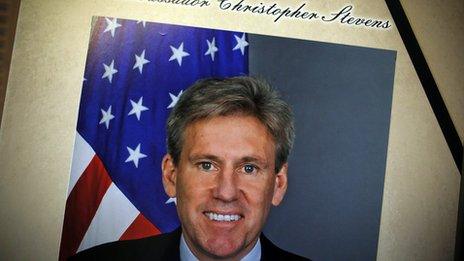CBS News apologises for 'wrong' Benghazi report
- Published
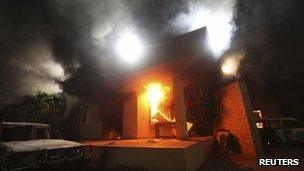
The 2012 attack on the US consulate in Benghazi. Libya killed four Americans
A CBS News programme has apologised for airing a report in October that gave false information about the September 2012 attack on a US diplomatic post in Benghazi, Libya.
A security contractor told 60 Minutes he had been present during the attack, but later gave a conflicting statement to investigators with the FBI.
Reporter Lara Logan said it was a "mistake" to put the contractor on air.
Four Americans died in the attack, including a US ambassador.
Ms Logan, a reporter for 60 Minutes, a storied current affairs programme, said on Friday a source had provided false information during a report aired on 27 October.
The security official, identified as Dylan Davies, said he had been at the US compound during the 11 September 2012 attack.
Mr Davies reported he had witnessed the attack, fought off an assailant, and later viewed the body of US Ambassador Christopher Stevens.
But other news outlets subsequently revealed Mr Davies had told FBI investigators and his employers he was not at the Benghazi compound the night of the attack.
'Made a mistake'
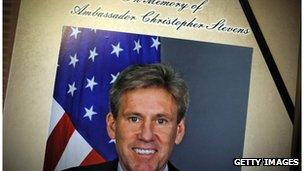
US ambassador J Christopher Stevens was killed in Benghazi
"The most important thing to every person at 60 Minutes is the truth, and today the truth is we made a mistake," Ms Logan told a CBS morning news programme on Friday.
"Nobody likes to admit they made a mistake, but if you do, you have to stand up and take responsibility and you have to say that you are wrong. And in this case, we were wrong."
Ms Logan added that 60 Minutes planned to air a correction on its regular broadcast on Sunday evening.
CBS News chairman Jeff Fager told the New York Times Mr Davies had lied to the network.
"There are people in the world who try to deceive others," he said. "We believe we have a really good system to guard against that. This guy got through that."
Meanwhile, publication of a book written by Mr Davies about the 2012 attack has been halted.
Threshold Editions said on Friday it was suspending publication of The Embassy House: The Explosive Eyewitness Account of the Libyan Embassy Siege by the Soldier Who Was There.
Charges pending
The book, written under the pseudonym Sgt Morgan Jones, was released on 29 October.
The attack against the US consulate - which resulted in the death of Mr Stevens, another state department worker, and two former Navy Seals - was originally said to have grown out of violent anti-American protests sparked by an anti-Islam film produced in the US.
It was later revealed to have been an organised, pre-planned assault by militia forces.
The US filed charges against a Libyan militia chief, Ahmed Abu Khattala, in August and an unknown number of other alleged attackers have also been charged.
Republicans denounced US President Barack Obama's handling of the incident, accusing the administration of failing to provide adequate security at the Benghazi compound and of neglecting to send a force to rescue the personnel after the attack began.
Also, the Republicans accused Mr Obama and his fellow Democrats of downplaying the attack in order to protect his 2012 re-election campaign.
- Published23 January 2020
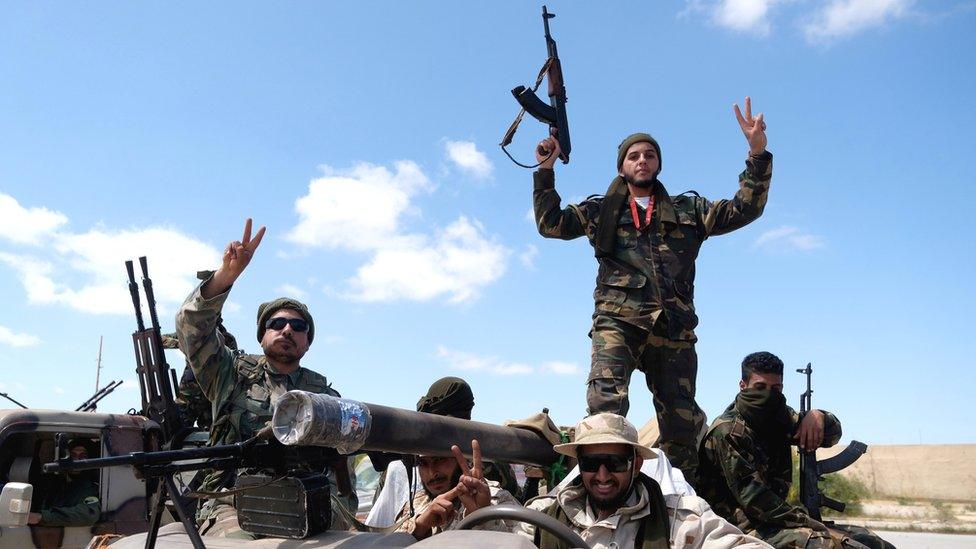
- Published7 August 2013
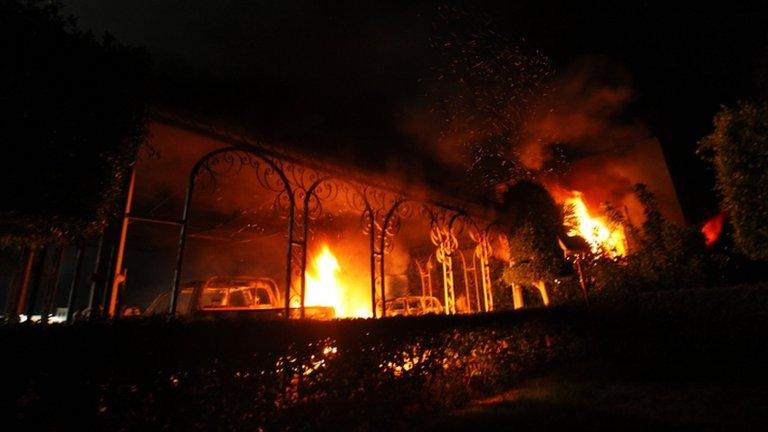
- Published18 May 2013
